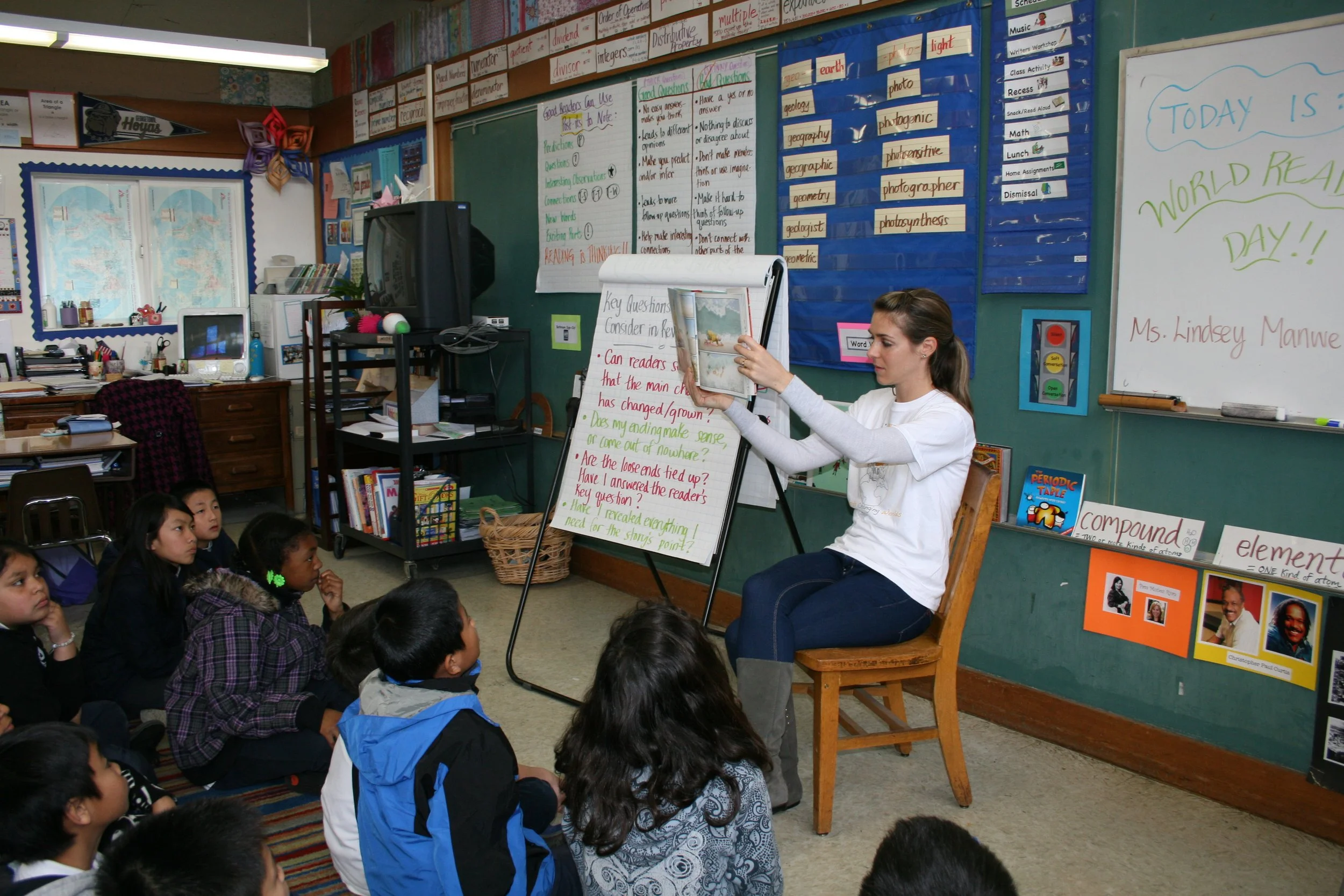Welcome to the second edition of our summer internship series! Today we are honored to share reflections written by Katya Barrett. Katya recently finished her freshman year at Brown University where she is thinking of majoring in education and comparative literature. She took a gap year between high school and college and spent 10 months working for the non-profit organization City Year in an urban middle school in San Antonio Texas. She loves to stay active and is a diehard Red Sox fan (despite growing up in New York!). Here's Katya.
For myself and the six LitCamp interns the past three weeks have been a wonderful whirlwind of getting to know each other and the full-time staff, beginning to plan our curriculum for the summer, and having inspiring meetings with many of LitWorld’s key partners. The days have been filled with interesting and varied work – from taking part in a poetry workshop and learning essential LitWorld songs, to hearing about co-workers' personal journeys in the world of education, and reflecting one-on-one about our hopes and dreams for the summer.
As fantastic as all of these opportunities have been, the standout moment of both this week and the summer for me so far was something entirely different. Earlier this week, the LitCamp interns were introduced to the teenage students who will be working with us throughout the summer as junior LitCamp counselors.
An excited team of LitCamp interns waiting for the subway to Broadway Housing Communities. (From left to right: Will, Adam, Rachael, Ashley, Eve and me, Katya.)
As we waited for the teens, who are from the Harlem community where our LitCamp operates, to meet us at Broadway Housing Communities, I had little idea what to expect. I'd heard stories of the teens and the important mentoring role that they play for the younger learners from our LitCamp directors who have worked with them for the past two years. Having spent much of the past few months looking forward to spending the summer with the children and young adults of Broadway Housing, the moments before our first introductions were filled with much excitement but also many unknowns.
But from the instant they joined our meeting, the teens filled the room with such joy, openness, and maturity. They jumped into our icebreakers, eager to discuss what their favorite cereals were, and as many of them are much more experienced in the ways of LitCamp than we interns, helped to guide us through the “Read-aloud” song.
Once we learned each other’s preferred breakfast cereal, we paired up (one intern with one teen counselor) to connect on a deeper level as we discussed our understandings of moving quotes by people such as Maya Angelou.
When we were presented with Maya’s powerful words, “I’ve learned that people will forget what you said, people will forget what you did, but people will never forget how you made them feel,” the room quickly filled with beautiful conversations about role models, encouragement, and how we can all embody these words this summer.
The work that we have been doing up until this point, figuring out how to work as a team and planning the logistics of classes and field trips, is hugely important. But for me, it was these discussions with the teens that gave the work real context. Their excitement, expertise, and thoughtfulness made returning to lesson planning the next day feel that much more meaningful, and even just meeting the teen counselors made the upcoming LitCamp begin to feel very real. And that is very, very exciting.













